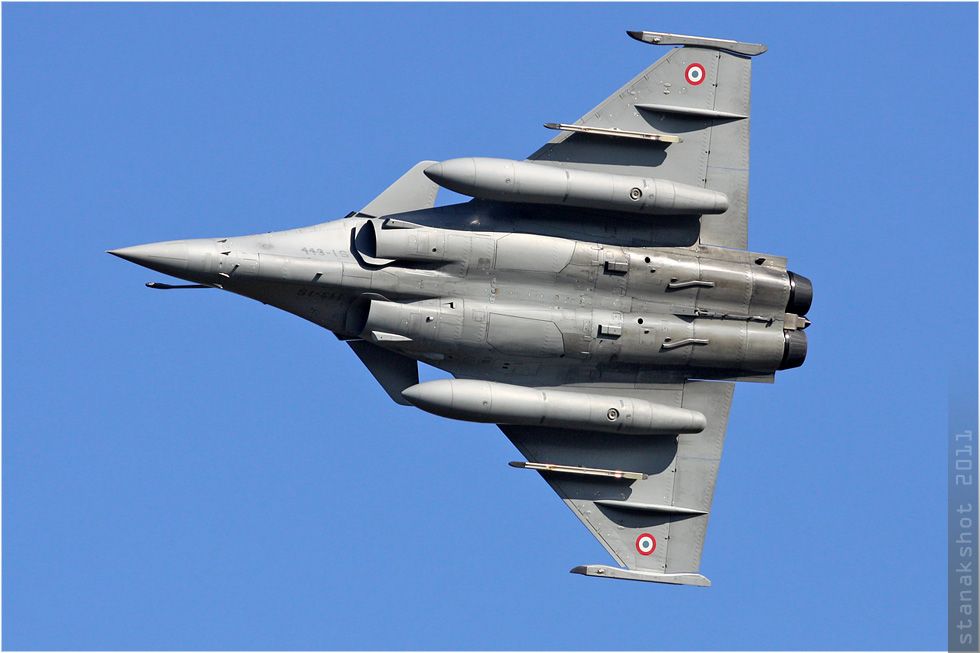By Pierre Tran
Paris – Croatia has opted to order 12 second hand Rafale fighter jets in a deal which points up the significance of European sovereignty, the French armed forces ministry said in a statement.
“Croatia’s choice is a choice of sovereignty, resolutely European,” armed forces minister Florence Parly said in the statement.
The deal for the Rafale F-3R fighter was worth some €1 billion ($1.2 billion) and included Mica NG air-to-air missiles, AASM powered smart bombs, a canon, training of pilots and mechanics, and service, officials in the minister’s private office said.
Croatia has selected the fighter jet, a French official said, and negotiations will be held over the next few months, with a contract due to be signed by the end of the year. This would be a government-to-government deal, with no requirement for offset investment.
The fighters will be drawn from the French air force, which played a key role in the presentations, an official said. A Rafale order will be the biggest French arms deal with Croatia, which joined Nato in 2009 and the European Union in 2013.
The pick by Croatia is the second European victory, following a Greek order in January worth €2.5 billion for 18 Rafale. The French fighter has long lagged behind US rivals in the world export market.
Zagreb picked the Dassault Aviation Rafale F3-R in a competition which attracted rival offers of the Lockheed Martin F-16 Block 70 from the US, Saab Gripen C/D from Sweden, and the F-16 Block 30 from Israel, Air Force Technology website reported. The Israeli offer of 12 second hand F-16s was worth an estimated $500 million.
Parly visited Croatia twice last year, in March and November, an official said.
France will deliver two batches of Rafale, with the first to be shipped in the third quarter 2023, and a second batch sent some 18 months later, an official said. That 18 months compared to the three years needed for building a new fighter.
There were no details on the financing and it was up to the Croatian authorities to decide the best way to fund the deal, an official said.
Saab said in its pitch of the Gripen that “cost-effectiveness” was a key factor for Sweden and Croatia, which were small countries. The Gripen package included all the service support Croatia would need to maintain the fighter.
In other tenders, Switzerland is expected to pick a fighter by the end of the first half, an official said, while Finland is due to select by the end of the year. The former is looking to order 30-40 fighters, while the latter seeks a fleet of 50-64 fighters.
In the Swiss tender, France has pitched the Rafale against the Eurofighter Typhoon, Boeing F/A-18 Super Hornet, and Lockheed Martin F-35A.
The Finnish competition has attracted the same fighters, plus the Saab Gripen.
Indonesia is also looking to acquire a fighter, with the Janes website reporting a contract for 36 Rafale might be delayed due to “lack of clarity over funding sources.”
France has no plans to replace the 12 fighters drawn from the French air force before 2025, an official said, when there will be a fleet of 117 Rafale flying.
France has sold 12 second hand and six new Rafale to Greece, and ordered 12 to replace the former for the air force.
The deal with Croatia is seen as boosting bilateral ties between Paris and Zagreb.
“This choice will considerably strengthen the strategic partnership between France and Croatia,” the defense ministry said. “This export deal illustrates a strengthening of the strategic links between France and Croatia and their common determination to work toward a strong and ambitious European defense.”
The decision by Croatia “reinforces the Rafale’s position in the European air forces, making an active contribution to European defense sovereignty,” Dassault said in a statement.


